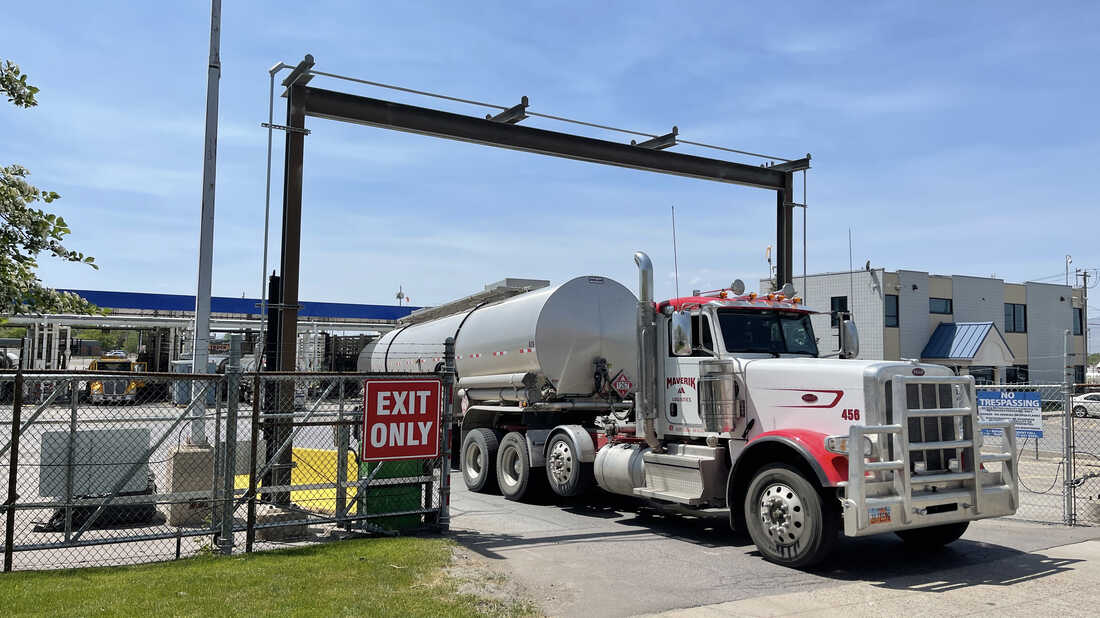
A driver exits the yard after filling up his gas tanker truck at Marathon Oil on May 20 in Salt Lake City. George Frey/Getty Images hide caption

A driver exits the yard after filling up his gas tanker truck at Marathon Oil on May 20 in Salt Lake City.
George Frey/Getty ImagesSchool districts can't find bus drivers. The TSA is short on security screeners. Ports can't find enough workers to load and unload shipping containers. Across many different sectors, the unavailability of workers is holding the economy back, and sending prices even higher. NPR's Scott Horsley reports.
Fuel truckers are another critical job that employers can't fill fast enough, explains NPR's Camila Domonoske.
Also in this episode: reporting from NPR's Andrea Hsu on why millions of older workers have decided to retire early during the pandemic.
Email us at
This episode was produced by Brent Baughman. It was edited by Scott Horsley, Uri Berliner, Lee Hale, and Fatma Tanis. Our executive producer is Cara Tallo.

 Live Radio
Live Radio